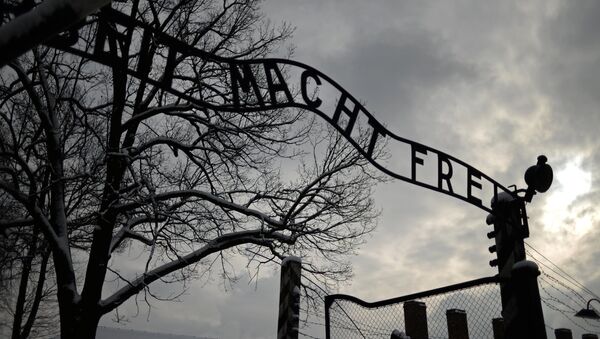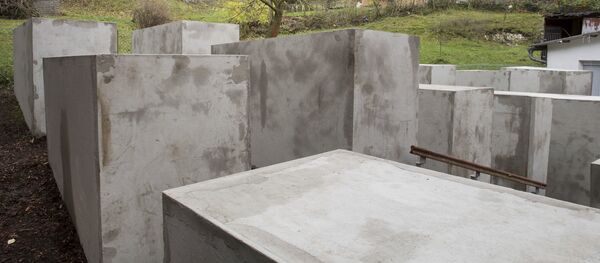The Organization of Holocaust Survivors in Israel, the Simon Wiesenthal Center and several other groups demanded answers from Duda in connection with the video that was first displayed as part of an exhibition titled "Poland — Israel — Germany. The experience of Auschwitz." that opened in 2015 in Krakow and was aimed at exposing the former Nazi death camp's impact on public discourse.
The exhibition, backed and funded by the Israeli Embassy in Poland, presented a video
After the installation was harshly criticized by Jewish advocacy groups, the embassy withdrew its endorsement and demanded the removal of the video.
"The embassy has learned of criticism regarding the video in question and has contacted organizers with a request that the parts deemed offensive be removed," Michael Sobelman, the embassy's spokesman, told JTA at the time.
Following a wave of protests, the Krakow museum pulled the exhibition — but it then reinstated it, claiming that it falls under freedom of artistic expression.
They also asked for details on what sort of rules of conduct exist at the site, how they are enforced and whether a probe into the circumstances of the incident had been carried out, the Simon Wiesenthal Center wrote in a statement about the letter. There is a possibility that a serious breach took place as normally there are very strict rules of solemn, sober conduct required at the sites used for Nazi-era atrocities, out of respect for the victims.
"It is the most disgusting thing I've seen in a long time," Efraim Zuroff, the Wiesenthal Center's chief Nazi hunter, said in 2015 about the exhibition. "They lied about it. It is just revolting and a total insult to the victims and anyone with any sense of morality or integrity."
About 110,000 people were sent to the death camp in Stutthof during the Second World War, and many of the 65,000 who died there were murdered in the gas chamber where the game was recorded.




